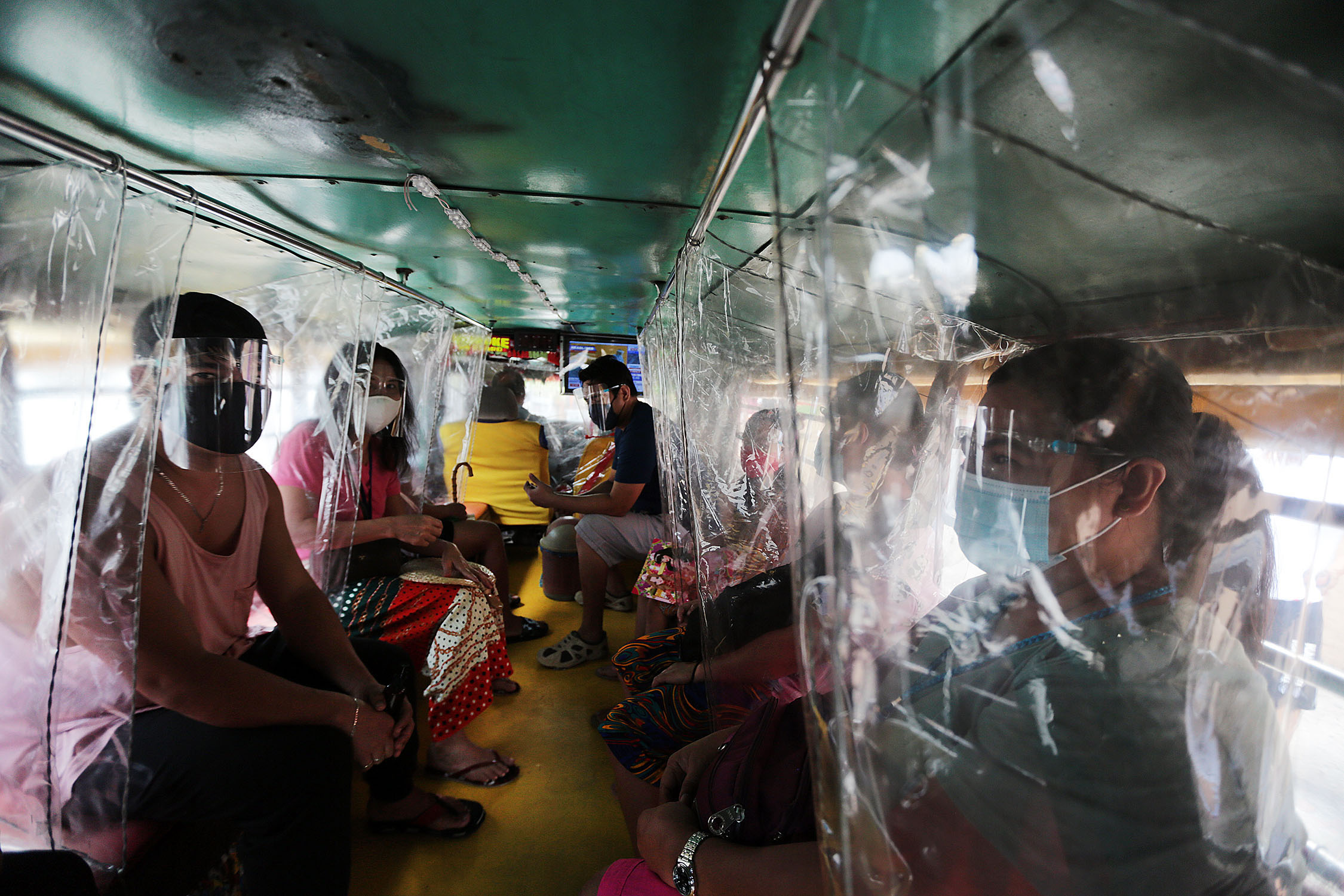OCTA urges another two-week GCQ extension even with dipping COVID-19 cases in Metro Manila

BACK TO GCQ A face mask and face shield combo is a must for passengers of a jeepney plying the Malabon-Monumento route on Aug. 19, 2020 as the National Capital Region reverted to general community quarantine. The more relaxed lockdown also meant the return of public transport. —GRIG C. MONTEGRANDE
MANILA, Philippines — The OCTA Research has recommended an extension of the general community quarantine (GCQ) in the NCR Plus bubble even as Metro Manila saw a decline of new daily COVID-19 cases to a little over 1,000 — about the same figure reported before the surge of cases in April.
For Dr. Guido David of the OCTA Research, it does not seem to be the right time yet for the NCR Plus bubble to ease to modified GCQ in June, given the still high number of new COVID-19 cases. He said the GCQ should be extended for two more weeks.
“While we believe we can relax restrictions, we think we should try to retain the GCQ at this time because the cases are still significant,” David said in an online press briefing Wednesday.
“We want to avoid situations wherein people become very complacent because they feel that the situation has improved significantly, that there are no more cases when in fact there are still cases,” he added.
David also noted that in February, Metro Manila was already under GCQ with an average 400 new daily confirmed cases.
However, David said the “heightened restrictions” under the present GCQ in the NCR Plus, which covers Metro Manila, Cavite, Rizal, Laguna and Bulacan, can now be relaxed.
“We can add capacity. Especially for business establishments that have been very responsible in following protocols, I think it would not be fair to keep the same restrictions since they have been following protocol and making sure they are taking the steps necessary to make sure that outbreaks don’t happen,” he pointed out.
Nevertheless, he said the government should look out for social gatherings that could be super-spreader events for coronavirus.
According to David, the average number of new daily cases in Metro Manila in the past seven days has decreased to 1,099, a number that he noted is about the same as the figure reported at the beginning of March.
“That is about 80-percent lower than the average during the peak of the surge. Of course the single-day peak was 8,000 but the daily average peak was 5,550. So this is a significant improvement and obviously we want to sustain this,” he said, noting “significant improvements in the trend.”
Meanwhile, NCR’s reproduction number, or the average number of people infected by one COVID-19 case, is currently at 0.53.
But even with the decreasing COVID-19 cases, the OCTA fellow reminded the public that Metro Manila will always be at risk for another surge, especially in view of more transmissible variants of the SARS-CoV-2 virus that causes the disease.
“We don’t know when this may happen. Variants come in. There are new variants arising in the world. Complacency may lead to another surge at this point in time,” he added.
EDV
For more news about the novel coronavirus click here.
What you need to know about Coronavirus.
For more information on COVID-19, call the DOH Hotline: (02) 86517800 local 1149/1150.
The Inquirer Foundation supports our healthcare frontliners and is still accepting cash donations to be deposited at Banco de Oro (BDO) current account #007960018860 or donate through PayMaya using this link.